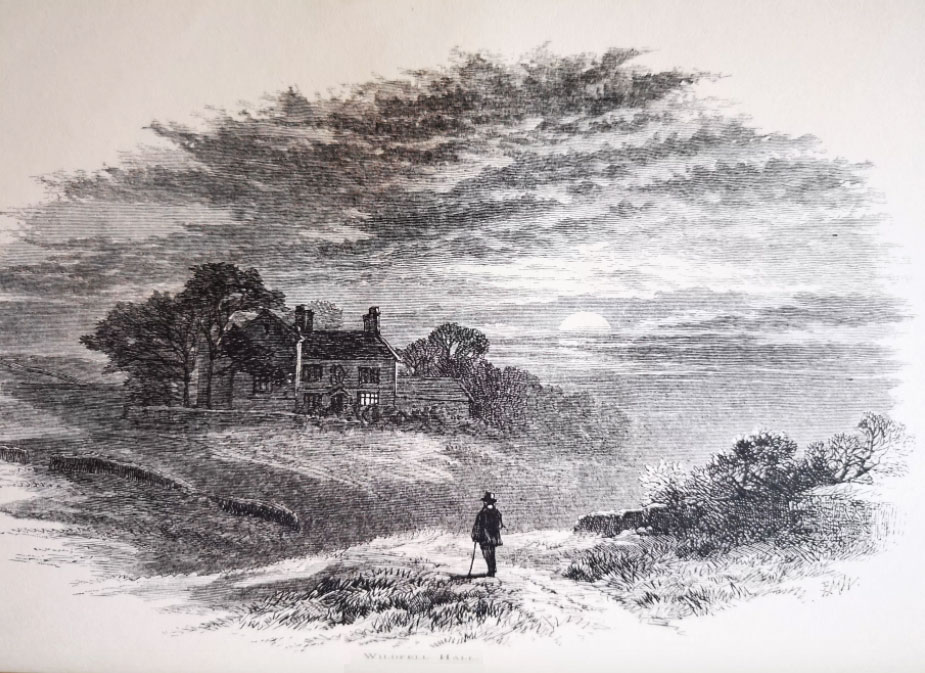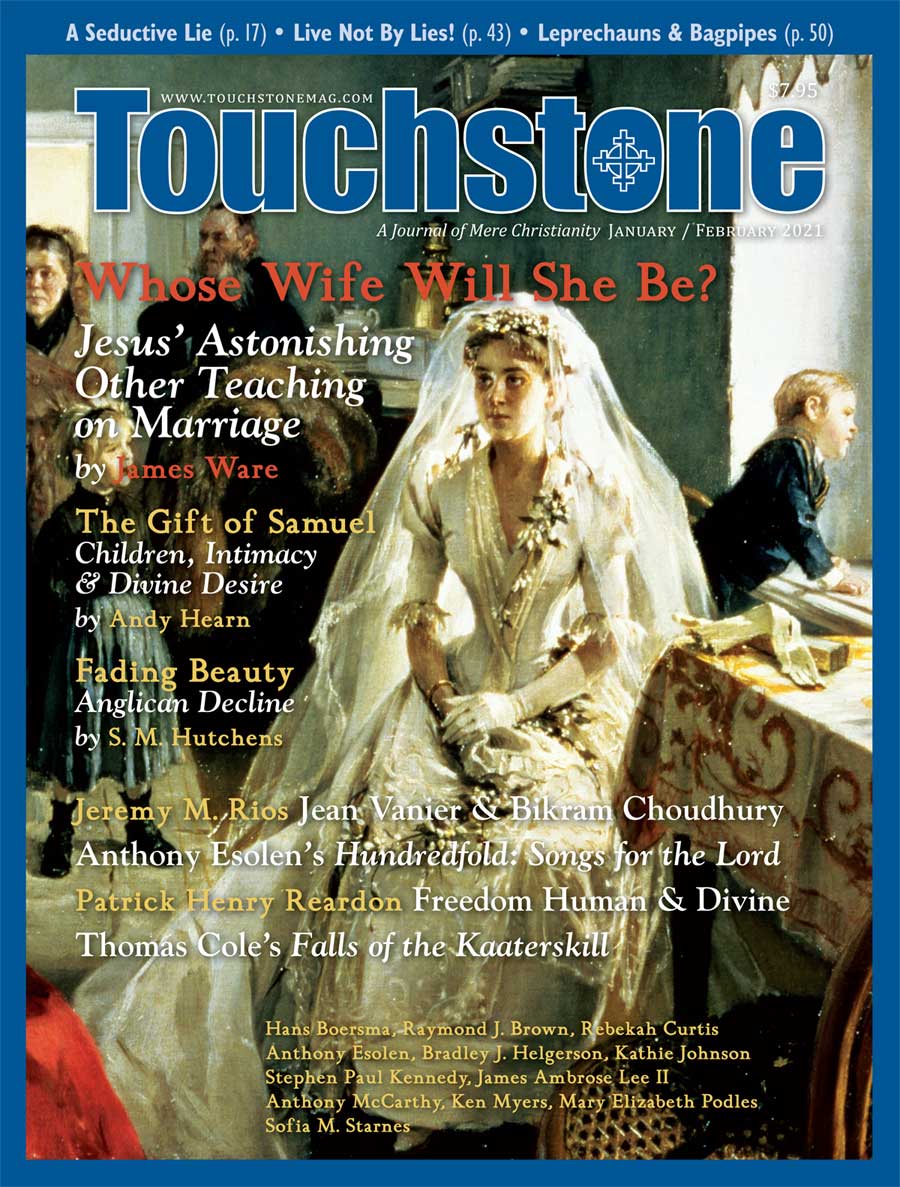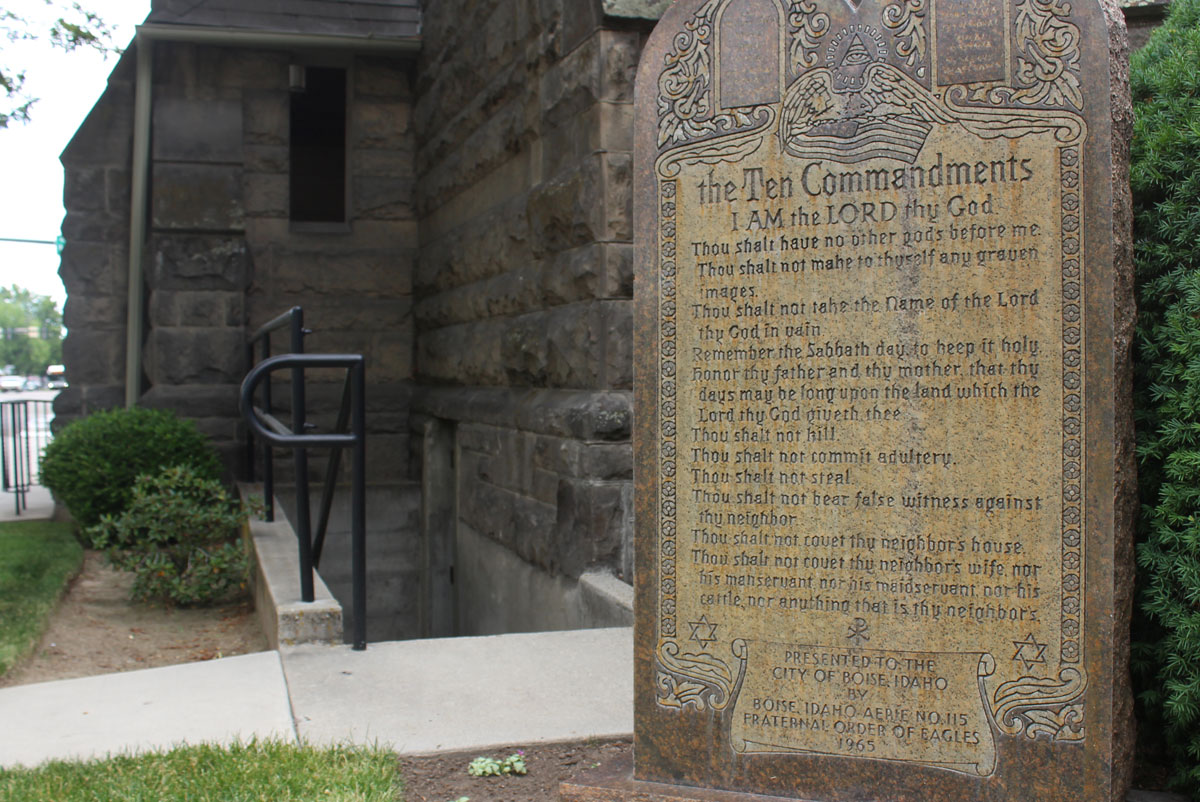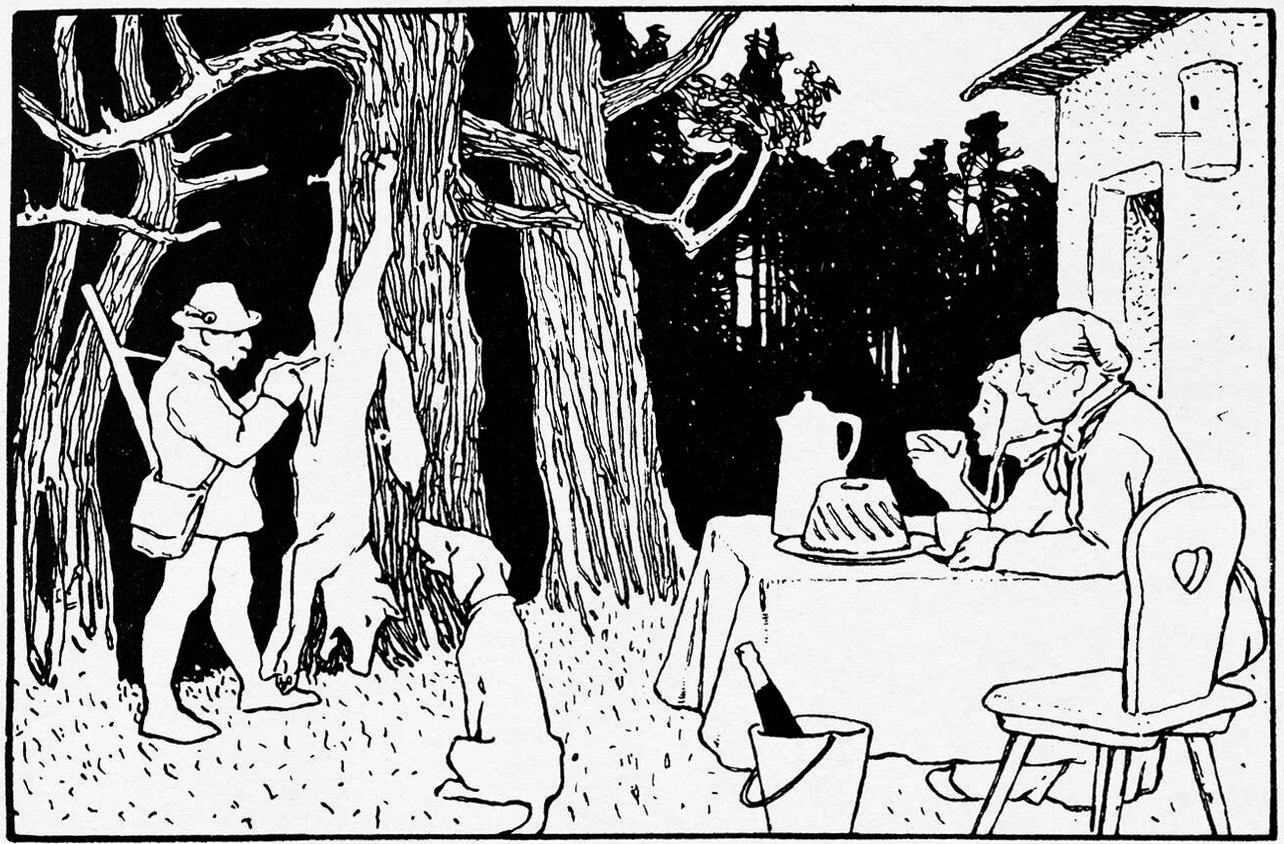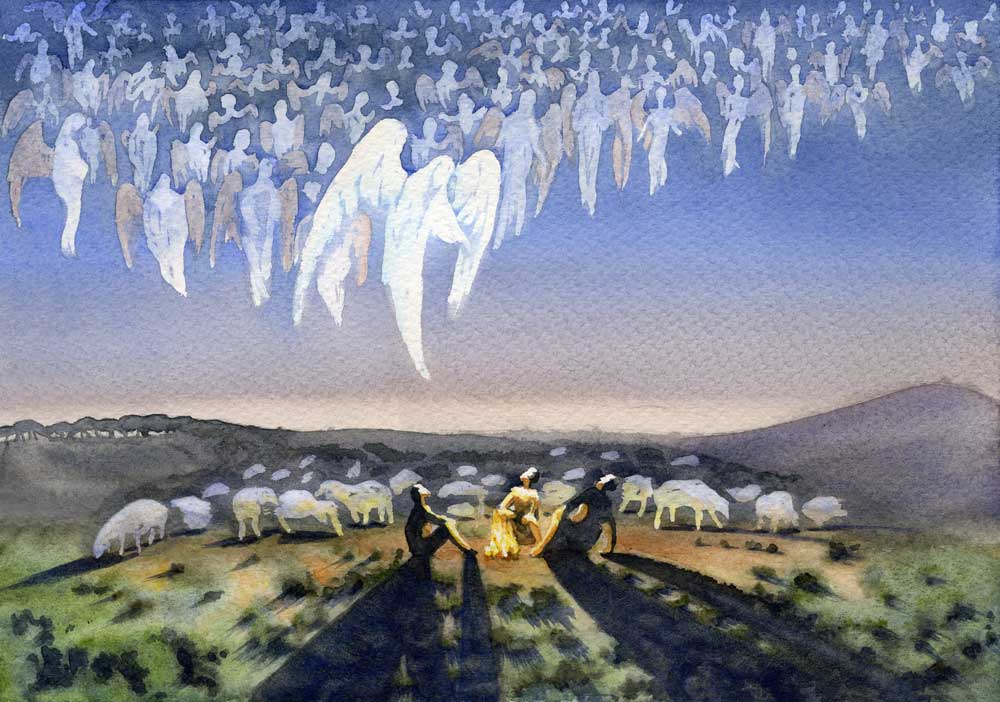Fighting for Love
What the World Needs Now It Hardly Knows
I am writing one week before the presidential election, and although I have no idea what its outcome will be, I know that Christians will be called upon as always to fulfill the two great commandments, to love the Lord our God with all our heart and soul and mind and strength, and to love our neighbor as ourselves.
The second commandment, Jesus says, is like unto the first, and many a Christian will say, correctly, that unless we love our neighbors, we do not love God, for "he that hateth his brother is in darkness" (1 John 2:11). What is harder for us to see is that unless we love God, we will not love our neighbors either. Here we verge upon the mysteries of God's grace, for many a man will by grace be moved to love, even though he does not know it is God who works upon him.
We cannot see into the individual man's soul. We can, however, observe the spirit of a culture, when God delivers it over to "a reprobate mind," and the people grow malignant, perverse, and cold in love, "without natural affection, implacable, unmerciful" (Rom. 1:28,31). Such is ours now, implacable, unmerciful, and unneighborly in the extreme. Every statue of an old and all-too-human benefactor or hero that comes tumbling down is a memorial raised to our intolerance, our unwillingness to forgive. We find fault where there is fault to find, and we are glad to find it, because we have so little that is virtuous and beautiful to show on our own account.
A Hope Now Hardly Conceivable
"Love is Love," say the angry signs, but where is this vaunted Love? That which was once the longed-for hope of a Christian culture is hardly conceivable now. Picture a debauched young man, dying at the side of the wife whom he has betrayed and abused, whom he had driven to flee him with their young son. She has now returned to tend to him, body and soul. When she begs him to think of the goodness of God, he cries out, "What is God? I cannot see Him or hear Him. God is only an idea."
She will not let him go. If the idea of infinite wisdom, power, goodness, and love is too vast, "if your mind loses itself in its overwhelming infinitude," she says, "fix it on Him who condescended to take our nature upon Him, who was raised to Heaven even in His glorified body, in whom the fullness of the Godhead shines."
No man at the point of death and judgment wants to hear about Jesus reduced to a very fine teacher, even the wisest who ever lived. Nor does he want to hear about a Jesus who had a loving heart. He needs Jesus Himself, he needs to hear that "God so loved the world, that he gave his only begotten Son, that whosoever believeth in him should not perish, but have everlasting life" (John 3:16).
Anne Brontë, in that climactic scene from The Tenant of Wildfell Hall (1848), does not make it clear that the sinner repented, but she has her heroine write in hope,
not only from a vague dependence on the penitence and pardon that might have reached him at the last, but from the blessed confidence that, through whatever purging fires the erring spirit may be doomed to pass—whatever fate awaits it, still, it is not lost, and God, who hateth nothing that He hath made, will bless it in the end!
I am not a universalist, nor do I want to broach the issue here. My point is that Miss Brontë, the daughter of a clergyman, could write such words only because she trusted that her readers would understand them, and that they too, in their inmost hearts, could imagine holding out a similar hope for the worst sinners among them, even for themselves. They could also understand why the woman would return to tend to the man who had darkened her life. To see that we do not understand these things, one might watch the most recent film adaptation of the novel (1996), whence all of the biblical allusions have been scrubbed; scenes of brutality, lust, wrath, and resentment dominate; and the actors and actresses cannot render any credible portrayal of what Paul calls "natural affection," even the most natural affection between man and woman.
Anthony Esolen is Distinguished Professor of Humanities at Thales College and the author of over 30 books, including Real Music: A Guide to the Timeless Hymns of the Church (Tan, with a CD), Out of the Ashes: Rebuilding American Culture (Regnery), and The Hundredfold: Songs for the Lord (Ignatius). He has also translated Dante’s Divine Comedy (Random House) and, with his wife Debra, publishes the web magazine Word and Song (anthonyesolen.substack.com). He is a senior editor of Touchstone.
subscription options
Order
Print/Online Subscription

Get six issues (one year) of Touchstone PLUS full online access including pdf downloads for only $39.95. That's only $3.34 per month!
Order
Online Only
Subscription

Get a one-year full-access subscription to the Touchstone online archives for only $19.95. That's only $1.66 per month!
bulk subscriptions
Order Touchstone subscriptions in bulk and save $10 per sub! Each subscription includes 6 issues of Touchstone plus full online access to touchstonemag.com—including archives, videos, and pdf downloads of recent issues for only $29.95 each! Great for churches or study groups.
Transactions will be processed on a secure server.
more on culture from the online archives
more from the online archives
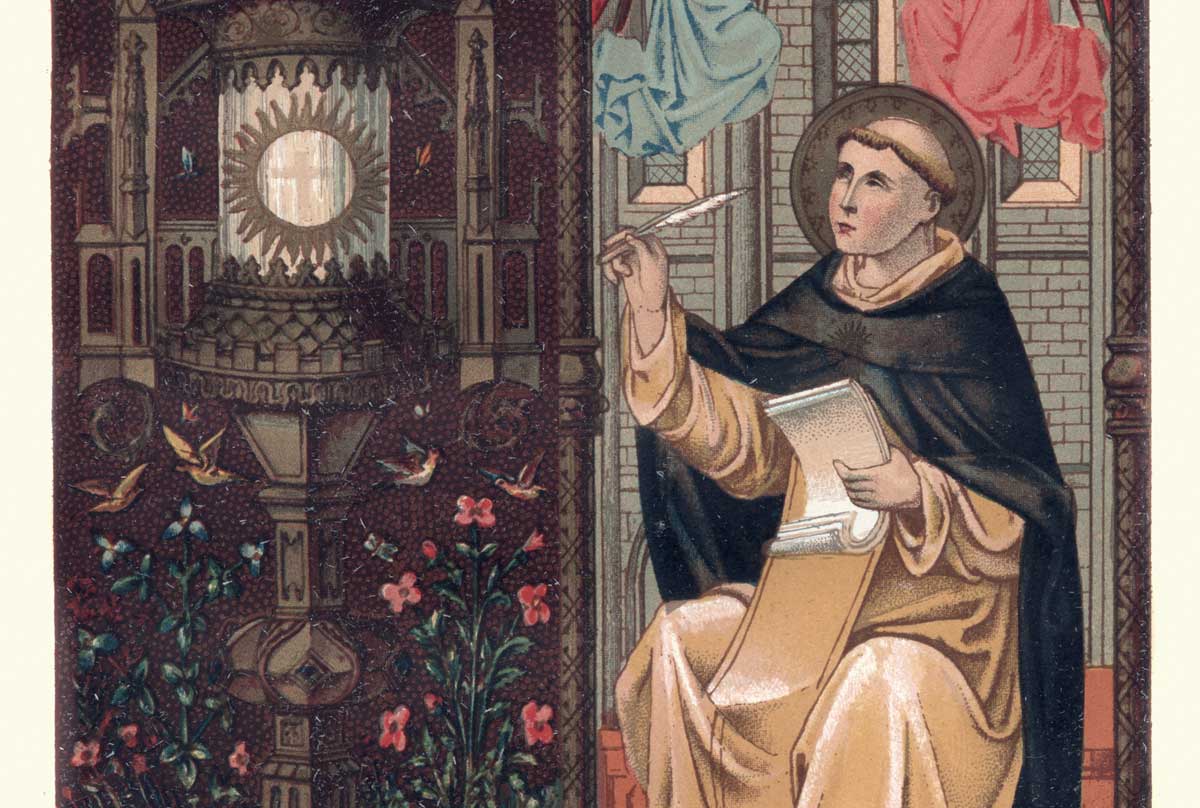
23.6—November/December 2010
Darwin, Design & Thomas Aquinas
The Mythical Conflict Between Thomism & Intelligent Design by Logan Paul Gage
calling all readers
Please Donate
"There are magazines worth reading but few worth saving . . . Touchstone is just such a magazine."
—Alice von Hildebrand
"Here we do not concede one square millimeter of territory to falsehood, folly, contemporary sentimentality, or fashion. We speak the truth, and let God be our judge. . . . Touchstone is the one committedly Christian conservative journal."
—Anthony Esolen, Touchstone senior editor





